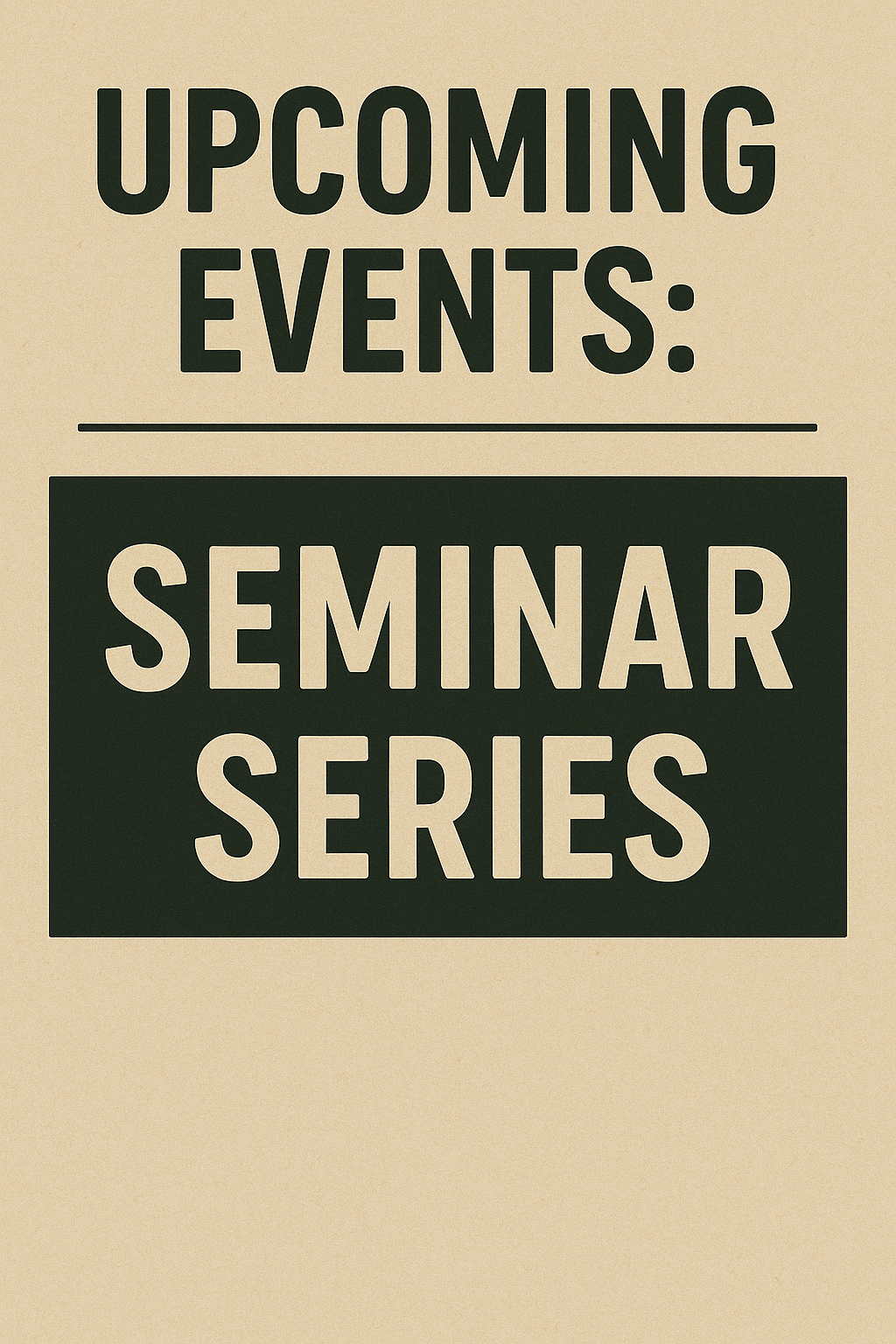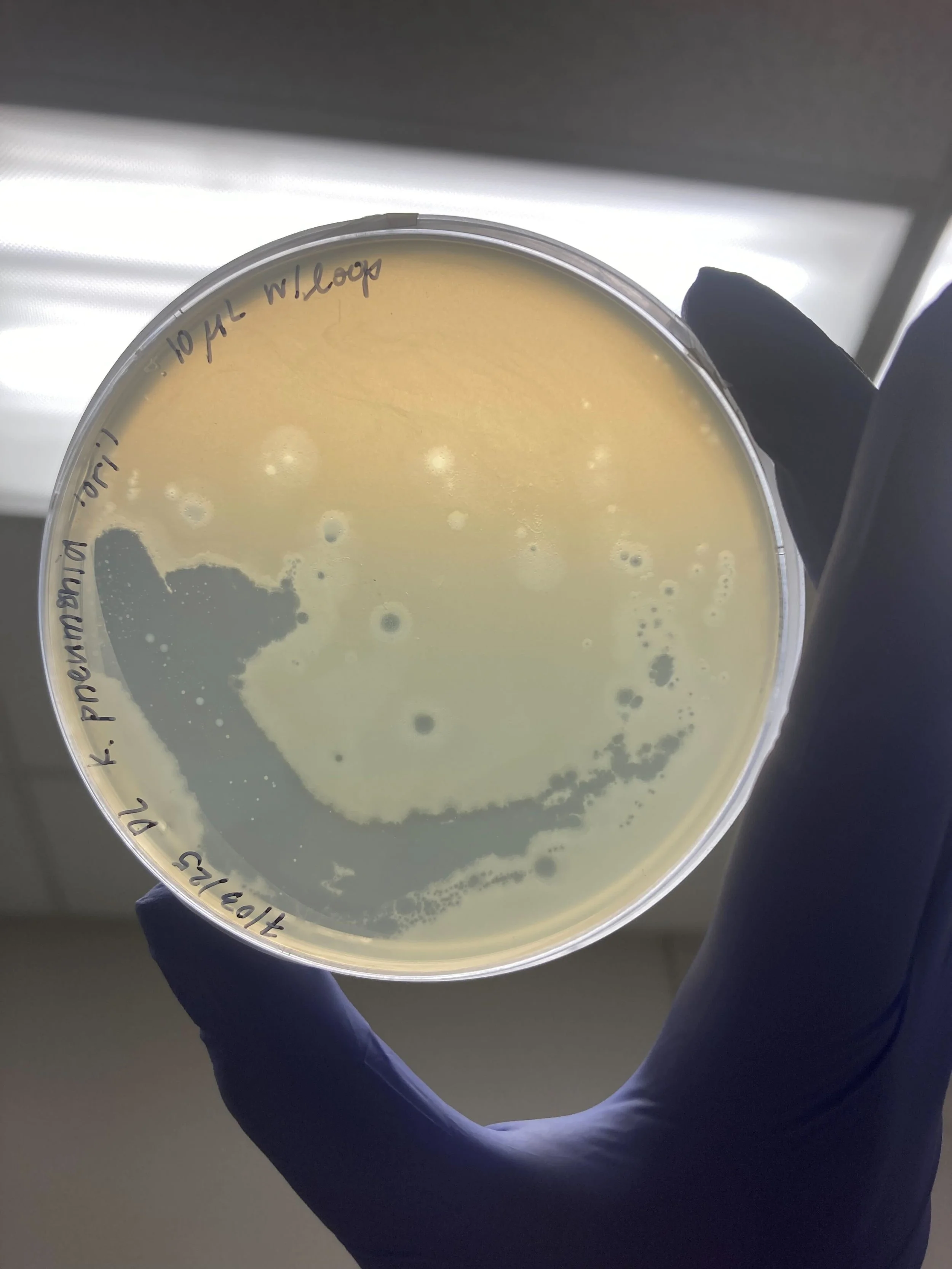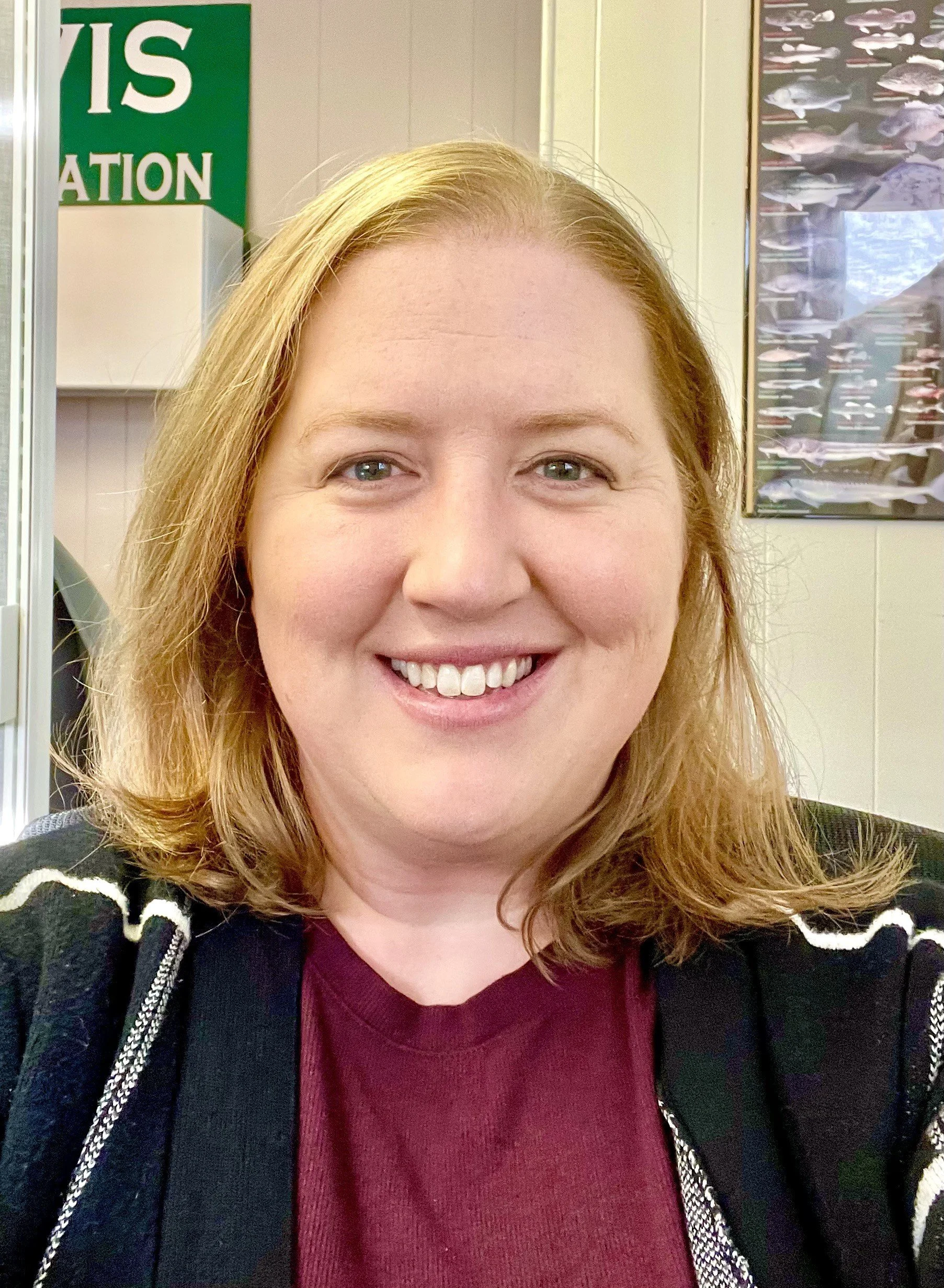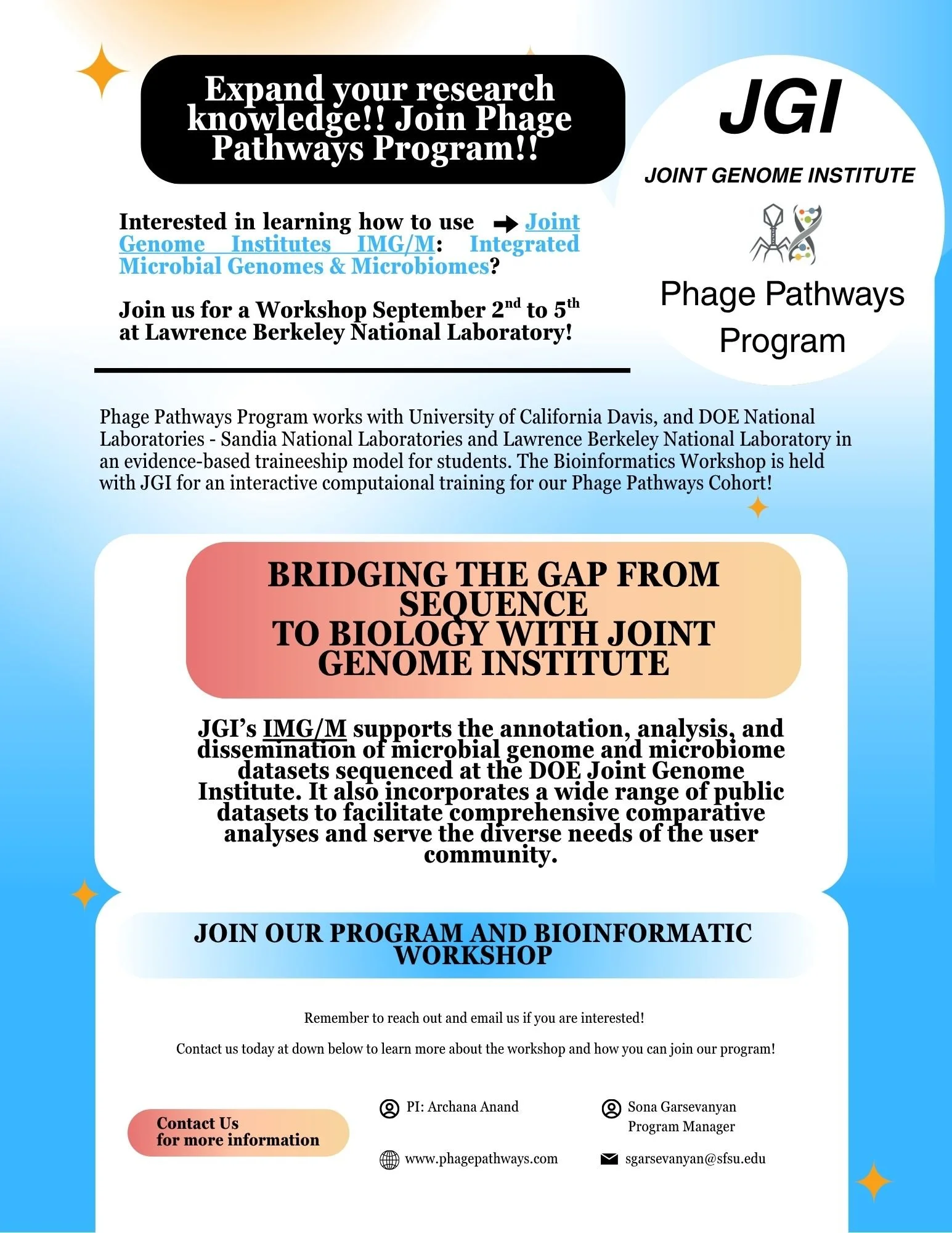

PAST EVENT: Graham F. Hatfull
Dr. Hatfull is Professor of Biological Sciences at the University of Pittsburgh. He completed his undergraduate studies in Biological Sciences at Westfield College, University of London (1975-1978) and graduate studies in Molecular Biology at the University of Edinburgh (1978-1981). Following postdoctoral research at Yale University with Dr. Nigel Grindley (1981-1983, 1984-1988) and with Bart Barrell and Fred Sanger at MRC Cambridge (1983-1984) he joined the University of Pittsburgh in 1988.
Dr. Hatfull's research interests include the molecular genetics of the mycobacteria and their bacteriophages, with particular interests in viral diversity and evolution, genetic systems for tuberculosis, and the mechanisms of site-specific recombination. He also explores ways to integrate research priorities with science education and helps to lead the HHMI-supported PHIRE and SEA-PHAGES programs.

PAST EVENT: Catherine Mageeney
Catherine Mageeney, a senior member of Sandia’s technical staff in bioengineering and biotechnology, has expertise in phage biology and genetics with broad applications and implications for scientific research. Phages, or viruses that infect bacteria, are the most numerous and diverse biological-organism in Earth’s biosphere. With approximately 1031 existing phages to be identified and studied, there is no shortage to identify, characterize, sequence, and analyze.
Mageeney’s phage research bridges several related areas of bioscience, including not only infectious diseases, but also climate study, biomanufacturing and bioenergy. She sees the plethora of phages “as a toolkit for solving complex biological problems by delivering useful genetic material to alter or kill unwanted bacterial pathogens.”
Mageeney has spent years in this field of discovery science since being introduced as a Cabrini College undergraduate, and she currently leads a team of undergraduate students in the Applied Bioscience Lab at Sandia/California.

PAST EVENT: Evelien Adriaenssens
The gut microbiota plays a crucial role in health and disease. We are focused on the virus component of the microbiome called the virome, and its role in human health. Our favourite group of organisms in the microbiome are the bacteriophages, viruses that infect bacteria.
We aim to elucidate the role of viruses in the healthy gut across life, leveraging data generated by the QI PEARL and MOTION studies. We are investigating the role of prophages in bacterial fitness and adaptation to the gut.
We are also heavily involved in virus taxonomy, creating a genomic framework with which to understand global viral diversity. We further aim to use newly isolated bacteriophages in the biocontrol of pathogenic bacteria in the fight against antimicrobial resistance, to improve human and environmental health.
We use a holistic approach of culture-dependent and computational methods to study viruses. Specifically, we are specialised in phage and prophage genomics and annotation, and viromics (viral metagenomics).


PAST EVENT: Arun Sethuraman
Dr. Sethuraman is an evolutionary computational biologist, who develops new statistical methods to study how genomes evolve in structured populations during divergence and speciation in response to natural selection and demography. Applications of his work include conservation, deciphering human evolutionary history, agriculture, and biological control.
Abstract: Humulus lupulus L., commonly known as hop, is a perennial crop grown worldwide and is well known for its pharmacological, commercial, and most importantly brewing applications. For hundreds of years, hop has undergone intense artificial selection, with over 250 cultivated varieties being developed worldwide, all displaying differences in key characteristics such as bitter acid concentrations, flavour and aroma profiles, changes in photoperiod, growth, and pathogen/pest resistances. Previous studies have individually explored differences between cultivars, aiming to identify markers that can quickly and cost-effectively differentiate between cultivars. However, little is known about their evolutionary history and the variability in their associated rhizospheric microbial communities. Coupling phenotypic, genomic, and soil metagenomic data, our study explores the global population structure and domestication history of 98 hop cultivars. We assessed differences in growth rates, rates of viral infection, usage of dissolvable nitrogen, and soil microbial community compositions between US and non-US based cultivars. Our study revealed that worldwide hop cultivars cluster into four subpopulations: Central European, English, and American ancestry as previously reported, and one new group, the Nobles, revealing further substructure amongst Central European cultivars. Modelling the evolutionary history of domesticated hop reveals divergence of the common ancestors of modern US cultivars around 2800 years before present (ybp), and more recent divergences with gene flow across English, Central European, and Noble cultivars, reconciled with key events in human history and migrations. Furthermore, cultivars of US origin were shown to overall outperform non-US cultivars in both growth rates and usage of dissolvable nitrogen and display novel microbial composition under common-garden settings in the United States.

PAST EVENT: Francisca Rodriguez
As microbiome research expands, it becomes increasingly important to employ data practices that produce Findable, Accessible, Interoperable, and Reusable (FAIR) data enabling streamlined data reuse. This can be a challenge to implement, particularly across disciplines, research institutions, and researchers themselves. With this goal in mind, the National Microbiome Data Collaborative (NMDC) created resources for the microbiome community to create, use, and reuse environmental microbiome data. This talk will discuss the challenges associated with FAIR data generation, data management best practices, and metadata standards to support their research throughout the data lifecycle. Discussion will cover: 1) The NMDC Submission Portal, developed to facilitate standardized metadata capture and sharing; 2) The NMDC Data Portal, developed to enable FAIR data access through standardized metadata and processed data, and 3) NMDC EDGE, a bioinformatics platform developed to enable data comparisons through standardized workflows. These tools are accessible at all experience levels, no prerequisite knowledge is required! This session will also introduce participants to NMDC Field Notes, a free mobile app that streamlines real-time registration and collection of standardized metadata and field measurements.


PAST EVENT: Lyndsay L. Rankin
Coastal wetlands provide numerous benefits such as flood protection, species habitat, and carbon storage. In fact, they capture and store more carbon than terrestrial forests, further reducing the negative impacts of climate change. Coastal wetlands in the San Francisco Bay – Delta are managed to maximize these benefits. Many of our projects are focused on measuring carbon in natural and restored Bay area wetlands. Long-term carbon storage can be measured by collecting soil core samples that are analyzed to detect organic carbon changes through time. Existing vegetation and soil microbe communities influence to the amount of carbon stored in the soil and how much carbon is released into the atmosphere. We use a greenhouse gas chamber analyzer to measure carbon dioxide and methane fluxes which can vary depending on soil type, salinity, vegetation communities, and tidal inundation. We are interested in understanding what drives carbon fluxes and storage to better inform coastal wetland management.

PAST EVENT: Bernd Schnabl
Dr. Schnabl received his medical degree from the University of Freiburg in Germany. During his three-year postdoctoral research training at the Department of Medicine, Biochemistry & Biophysics at the University of North Carolina at Chapel Hill, he started to study hepatic stellate cell biology and pathophysiology of chronic liver diseases. He completed a residency in Medicine at the University Hospital in Regensburg/Germany and a Gastroenterology fellowship at Columbia University, College of Physicians and Surgeons, in New York City.
He is currently a Professor of Medicine in the Division of Gastroenterology at the University of California San Diego. He is staff physician and attending at the VA San Diego Medical Center and the UC San Diego Medical Center. He divides his time between clinical work and research. He recently became the Director of the NIH-funded San Diego Digestive Diseases Research Center (SDDRC).

PAST EVENT: Tae Seok Moon
Tae Seok Moon is a full professor at J. Craig Venter Institute, an EBRC (Engineering Biology Research Consortium) Council Member, a SynBYSS (Synthetic Biology Young Speaker Series) Chair, a founder of Moonshot Bio, an Executive Board Member of the European Federation of Biotechnology, and an editor of 10 journals, including the Editor-in-Chief of New Biotechnology and the Executive Editor of Biocatalysis and Agricultural Biotechnology. He is also the director of NSF Global Center CIRCLE consisting of 16 companies and >40 academic investigators at 18 institutes from 6 nations.
He has expertise in Systems and Synthetic Biology. He aims to solve global agricultural, environmental, manufacturing, and health problems through engineering biology. His research projects have been supported by Gates Foundation, AIChE, and 14 governmental funding agencies (31 external grants), and he has secured >$14M (>$43M for the entire teams since 7/1/2012). These projects and his prior research efforts have resulted in 104 publications (93 as the PI), 224 invited talks, 203 contributed conference presentations, and 10 patents. His achievements have also been recognized with many awards, including a Langer Prize for Innovation and Entrepreneurial Excellence (AIChE & MIT), a B&B Daniel I.C. Wang Award (Wiley & ACS), an NSF CAREER award, an ONR Young Investigator Award, a John C. Sluder Fellowship (MIT), an ILJU Foundation Award, an LG Chemical Fellowship, and the SNU President Prize.
He is deeply committed to spending the time required to promote the career development of his advisees and young researchers in the world. He has advised 115 young researchers who are diverse in race, gender, and nationality since 2012, including 22 students in other labs as a committee member, 29 undergrad researchers, 6 international Genetically Engineered Machine (iGEM) competition teams (not counted toward 115), 31 grad rotation students (excluding ones who joined his lab permanently), 18 PhD students (8 students graduated), 3 MS students (funded by him), 4 technicians, and 8 postdoctoral researchers. Among these 29 undergrad researchers, 12 students chose to pursue grad studies in STEM. Many lab members have received fellowships & awards for their research, and lab alumni are contributing to society in universities, national labs, and industries (e.g., one developed the Pfizer COVID-19 vaccine). In addition, teaching kits have been developed and distributed to more than 40 high school science teachers and hundreds of K-12 students, broadening impacts on STEM education.
He is an active member of the global community of researchers who work in the fields of chemical engineering and bioengineering. He has actively participated in organizing many international conferences as a conference co-chair or organizer. He has also served as a reviewer, the editor-in-chief (New Biotechnology), the Executive Editor (Biocatalysis and Agricultural Biotechnology), an associate editor (8 journals), or an editorial board member (7 journals) for >50 journals, including Nature/Science/Cell journals, Nucleic Acids Res., and PNAS. Notably, his global leadership efforts include 1) his activity and role at EBRC as a Council Member to provide the vision to address national and global needs through synthetic biology and 2) his service to SynBYSS as the Founding Chair to provide a weekly, virtual, and multi-year forum where a global thought leader gives an opening 5 min talk, followed by a 45 min, rising star’s talk, for >1,000 global audiences. The 417 speakers (as of Jan. 2025) include a Nobel Laureate, 22 National Academy Members, 42 funding agency directors, 20 Editors-in-chief, 11 Nature/Cell journal editors, and 199 rising stars.

PAST EVENT: Faith Dukes
Faith Dukes, Ph.D. currently serves as the Director of K-12, University, and Faculty STEM Education Programs at Lawrence Berkeley National Laboratory. Her work is at the intersection of STEM research, education, and accessibility. Prior to her work at Berkeley Lab she held positions at the MIT Museum and National Science Foundation focusing on STEM curriculum development and STEM education policy. She holds a bachelors of science from Spelman College and completed her PhD in physical chemistry studying photocatalytic semiconductors at Tufts University.





